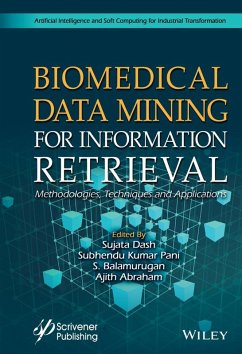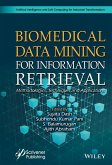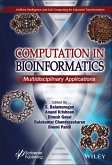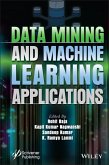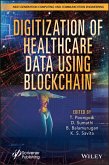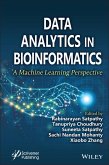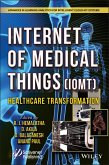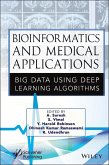BIOMEDICAL DATA MINING FOR INFORMATION RETRIEVAL This book not only emphasizes traditional computational techniques, but discusses data mining, biomedical image processing, information retrieval with broad coverage of basic scientific applications. Biomedical Data Mining for Information Retrieval comprehensively covers the topic of mining biomedical text, images and visual features towards information retrieval. Biomedical and health informatics is an emerging field of research at the intersection of information science, computer science, and healthcare and brings tremendous opportunities and challenges due to easily available and abundant biomedical data for further analysis. The aim of healthcare informatics is to ensure the high-quality, efficient healthcare, better treatment and quality of life by analyzing biomedical and healthcare data including patient's data, electronic health records (EHRs) and lifestyle. Previously, it was a common requirement to have a domain expert to develop a model for biomedical or healthcare; however, recent advancements in representation learning algorithms allows us to automatically to develop the model. Biomedical image mining, a novel research area, due to the vast amount of available biomedical images, increasingly generates and stores digitally. These images are mainly in the form of computed tomography (CT), X-ray, nuclear medicine imaging (PET, SPECT), magnetic resonance imaging (MRI) and ultrasound. Patients' biomedical images can be digitized using data mining techniques and may help in answering several important and critical questions relating to healthcare. Image mining in medicine can help to uncover new relationships between data and reveal new useful information that can be helpful for doctors in treating their patients. Audience Researchers in various fields including computer science, medical informatics, healthcare IOT, artificial intelligence, machine learning, image processing, clinical big data analytics.
Dieser Download kann aus rechtlichen Gründen nur mit Rechnungsadresse in A, B, BG, CY, CZ, D, DK, EW, E, FIN, F, GR, HR, H, IRL, I, LT, L, LR, M, NL, PL, P, R, S, SLO, SK ausgeliefert werden.

